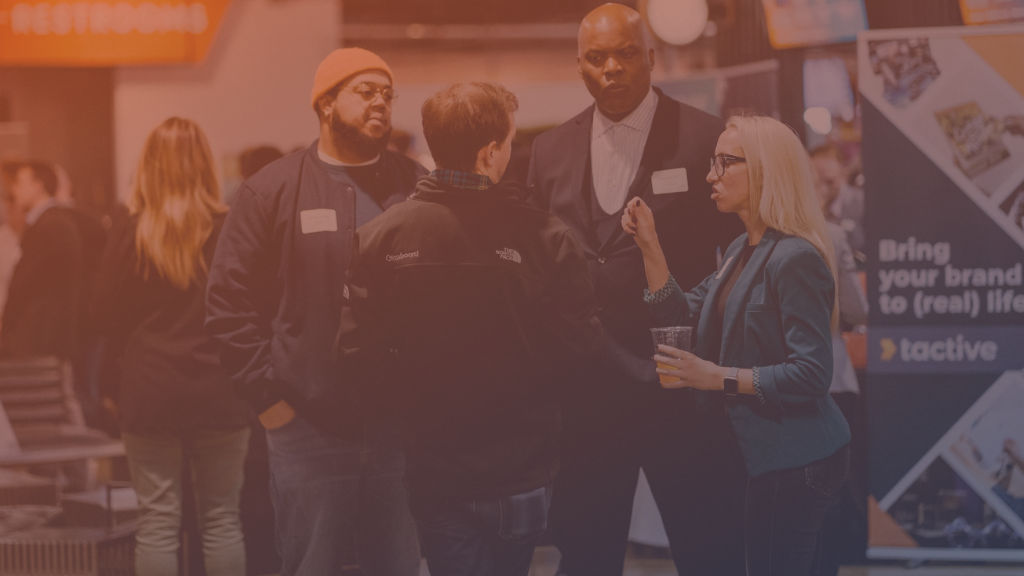What can you learn from a serial entrepreneur and technologist with more than thirty years of experience?
We recently sat down with Scott Jones, the Indiana-based inventor of voicemail, and other products like Gracenote and ChaCha, to discuss how to accelerate your career in tech.
Scott is now the Founder and President at Eleven Fifty Academy, a non-profit coding bootcamp that differentiates in its training style and unique approach to learning. He joined fellow academy founder Jessica Mitsch, who is the CEO of Momentum, to share insights about how to get the edge in your tech career.
Get access to the full video here>>
Here are a few key learnings on how to level up:
- Find mentors – particularly local mentors – whenever you can. Both Jessica and Scott consider mentors an absolutely critical part of finding and landing your next opportunity.
- Hard skills are an absolute requirement, but Scott also stressed the importance of “essential skills,” which is Eleven Fifty’s term for soft skills. This includes getting along with teams, business etiquette, and knowing how to interview well. Practice both hard skills and essential skills as much as possible.
- Jessica encourages all tech professionals to put themselves out there, even in our current remote work world. She said, “Your network is how you get work. If you’re interested in getting into the industry, everything’s virtual right now. It will be for a while. We’re encouraging graduates of Momentum to contribute content online. Write a blog post, or publish on Twitter or LinkedIn about what you’re learning and what you’re interested in. Get creative and make sure you’re still showing people where you are.”
Interested in more insights into leveling up your tech career?
Get access to the full video here>>
Transcript
John:
Congratulations, Brandon. Happy to have them involved. Good. So I wanted to ask you all a little bit about mentors. I know that myself personally valued a lot working with mentors, when I was starting out my career and actually continuing to this day. So how do you both feel about mentors and what kind of people make the best mentors out there for those people that are gearing up for their careers in tech?
Scott:
Well, I’ll jump in there. My previous company, I mean, I’m still leveraging mentors today. But I had a really interesting situation, my last company that I was running called cha cha, some of you might remember your text 240 242 and get an answer to your question. Why do people use it? And bar trivia and kids used it to answer test questions, a temporary in the morning. But anyway, we answered two and a half billion questions in a couple of years. And it’s now used by one of the top services like Siri and Alexa and Cortana. Anyway, my mentors, some of my mentors were, you know, the guy who was the fastest to get $2 billion in revenue, created a company that brought laptops to the world Compaq guy named rod Canyon, I learned a ton from him. mort Myerson. If you remember the the PowerPoint that ross perot did In the presidential election, more, it was kind of behind that running Ross’s campaign, but he went on more it had been running EDS and and then for systems. So these people had run, you know, billions of dollar companies. And they just had a wealth of knowledge for me. Sometimes I didn’t want to listen to it. But, you know, there were times I remember, mort brought a phrase to the table, CF beast, which was, I never heard of it. And he said, You got to orient your company around cash flow, and that’s cash flow, breakeven and stay there, CFP. And so we started running our company on those principles. You know, p&l is one thing and raising lots of money, like, the the unicorn companies like Uber and Airbnb do. But I think he brought to the table, some really important things, we raised about $82 million for that company. But he was just constantly on that mantra, you know, cash is king, and you got to run the company on cfps while you’re out raising money. So, you know, mentors are just so critical for, you know, things like that, and I just named one. But there were literally hundreds of things that my mentors from all over, have helped me with, by the way, Matt was in that company to Matt Hunckler. So we did some good things together at Chacho. Sure. Jessica, how about you? Good.
Jessica:
Yeah, this is awesome. Scott, I think it sounds like you’ve also found those mentors locally. And the theme of today is the unv Valley. And I think that talking about how our local community can really feel those connections. And helping us understand that, you know, I’m, I’m down in, in the Raleigh Durham area of North Carolina, and we are lucky to have had people that have had success in our area. And feeding off of that success is so important. For me, you know, Red Hat was a big local success, I had the honor of working there, when we when they hit their first billion dollars in revenue and understanding what happens at that type of scale. And what’s required is critical. And so sometimes just like the that company environment can provide mentorship through a lot of different people that you interact with. And that’s key. And then, you know, being a female founder, where there are, you know, not many out there still, making sure to have a group of women that are also, you know, dealing with similar things and the challenges to balance, work and life and understand, kind of what we’re up against is is important. I get together with a group of other female founders once a month right now it’s over zoom for lunch. And and that’s really valuable time.
John:
Sure. Well, you know, we have a couple of minutes left, I’m going to ask this as broadly as possible. And again, if anybody has any questions, drop them in the in the chat, we’ll try to get to them. But you know, what can people do that are watching to make themselves most appealing to tech companies in the job market right now? I’m going to keep with the theme of our of our panel here today, and any thoughts on what people can do to make the most appealing?
Scott:
Oh, I was gonna say, Did you say do the hard skills just, yeah, gain tangible skills? Right. And what we find is, you know, that’s critically important in sort of, at the heart of programs that we’ve been involved in at 1150 and Ironworks hiring yard, and, you know, that’s key. But we find that to place people the, the soft skills that go along with the hard skills, it’s like hard skills is the absolute requirement. But we’re finding that another absolute requirement is what some people call soft skills, we call them essential skills, which is how do you get along with a team? How do you do agile project management? We teach things in 1150, like business etiquette, you know, how to shake your hand. You know, if you’re invited to a dinner, what do you do? What do you wear? How do you show up to work? Right?
Because, and we actually hire professional recruiters into our career services. So it’s not like a college campus, where your career services is on the fringe of campus never visited by any students. It’s, you know, part of what we do is, you know, we work with our students during the entire 12 weeks, trying to get employers in the cloud. We do get the players into the classroom, doing mock interviews over and over, going through testing scenarios that the actual employers locally are using. So that sort of like preparing for an essay t These students are ready for that. And we’re showing them how to do an interview how to have a LinkedIn, I remember one of the LinkedIn ads. I mean, many of them didn’t have a LinkedIn, but some of them, you know, had a selfie in their car they were working on, you know, which was not a good look for an employer. And, you know, making sure their social media is cleaned up, and just all those things that work, you know, that are important during the recruiting and interview process.
And then also, once they get there, how do they interact and operate with a team? And how do they, you know, do even more than the hard skills. And by the way, what I say at the graduation is, you know, you’re, it’s gonna take, you know, between, you know, zero days and six months to get a job. But if you’re not using these skills every single day, what you just learned, it will fall out of your head onto the sidewalk. So you got to be doing those hard skills constantly, even if it means volunteering for a family member or friend or doing something on your own, that stretches your skills every day. That’s what you have to do getting ready for that job, so that you’re ready for that interview. And then, you know, go do interviews with people that maybe don’t matter as much just to practice that process, because it’s so important.
Jessica:
Yeah, and to add to all of that, and agree completely, Scott is also your network is how you get work. So if you’re interested in getting into the industry, right now, obviously, everything’s virtual for them, you know, and it will be for a while. So what we’re encouraging graduates of momentum to do is to make sure that they’re contributing content that they’re staying really interested in all of what they’ve learned. And they’re showing that by writing a blog post about something that they found interesting, making sure that they’re publishing that are there, they’re on Twitter, they’re on LinkedIn, and that their presence there is promoting what they’re really curious about what their what they have learned so far, and is speaking to a recruiter that might find them or a hiring manager that might find them that shows that they’re really serious about this, and that, you know, lack of going down to a local networking event, you are really finding other ways to get creative in this time and make sure that you’re still showing people where you are.
Get access to the full video here>>


